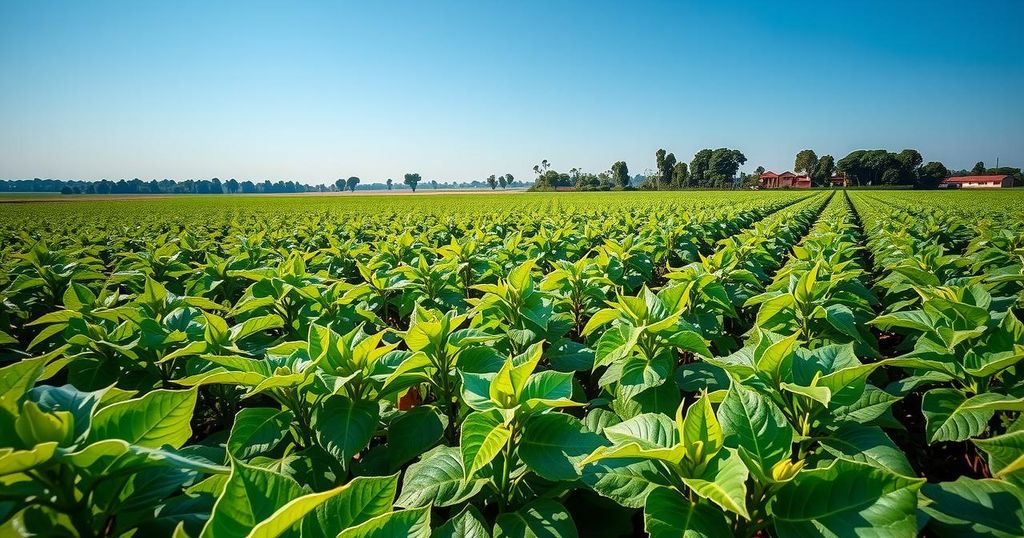Brazil Faces $1.76 Billion Annual Losses Due to Soybean Seed Piracy
Brazil incurs an estimated annual loss of $1.76 billion due to soybean seed piracy, impacting the agricultural economy and global credibility. The study reveals that pirated seeds occupy 11% of soybean planting areas, threatening quality and yield. The financial implications extend to tax revenue loss and hinder public funding. Collaborative actions from industry stakeholders are critical to combat this issue and protect employment in the agribusiness sector.
A recent study by CropLife Brasil and agribusiness consultant Celeres Consultoria indicates that Brazil suffers losses of approximately 10 billion reais ($1.76 billion) each year due to soybean seed piracy. This issue not only impacts the agricultural economy but also highlights broader challenges faced by companies in the seed, chemical, and biotechnology industries. Brazil, as the world’s leading soybean producer and exporter, faces significant challenges from the counterfeit seed market.
The report reveals that around 11% of Brazil’s soybean land area is occupied by pirated seeds. Brazil’s national crop agency, Conab, reported a total soybean planting area of 46.15 million hectares (114.039 million acres) for the 2023/24 season, with expectations for growth to 47.45 million hectares by 2024/25. The prevalence of pirated seeds threatens Brazil’s agricultural sector and undermines its global credibility, as producers relying on these low-quality seeds experience lower yields and quality.
The financial implications of seed piracy are profound, with estimates suggesting a loss of approximately 1 billion reais ($176.15 million) in potential tax revenue over the next decade. Additionally, combating seed piracy may lead to investments that could enhance seed varieties, amounting to around 900 million reais ($158.99) over ten years. This loss extends beyond agriculture, affecting public funds that could support essential services and infrastructure, hence stunting national economic growth.
The findings of this study serve as a critical alert to agricultural stakeholders. CropLife Brasil emphasizes the urgent need for collaborative actions to address seed piracy. The presence of pirated seeds not only undermines industry innovation but also stalls advancements in agricultural technology that could enhance productivity and sustainability. The agribusiness sector is vital for Brazil’s economy and employment; uncontrolled seed piracy could endanger the livelihoods of numerous workers. Mitigating illegal trade is essential for bolstering Brazil’s international standing and securing jobs within the sector.
In conclusion, seed piracy in Brazil results in substantial annual losses and poses critical challenges to the agricultural sector and the broader economy. Addressing this concern requires urgent collaborative efforts to enhance seed quality and safeguard economic growth. Effective measures against seed piracy could lead to improved agricultural productivity, innovation, and ultimately benefit the livelihoods of many in the agribusiness sector while reinforcing Brazil’s position in international markets.
Original Source: www.tradingview.com




Post Comment